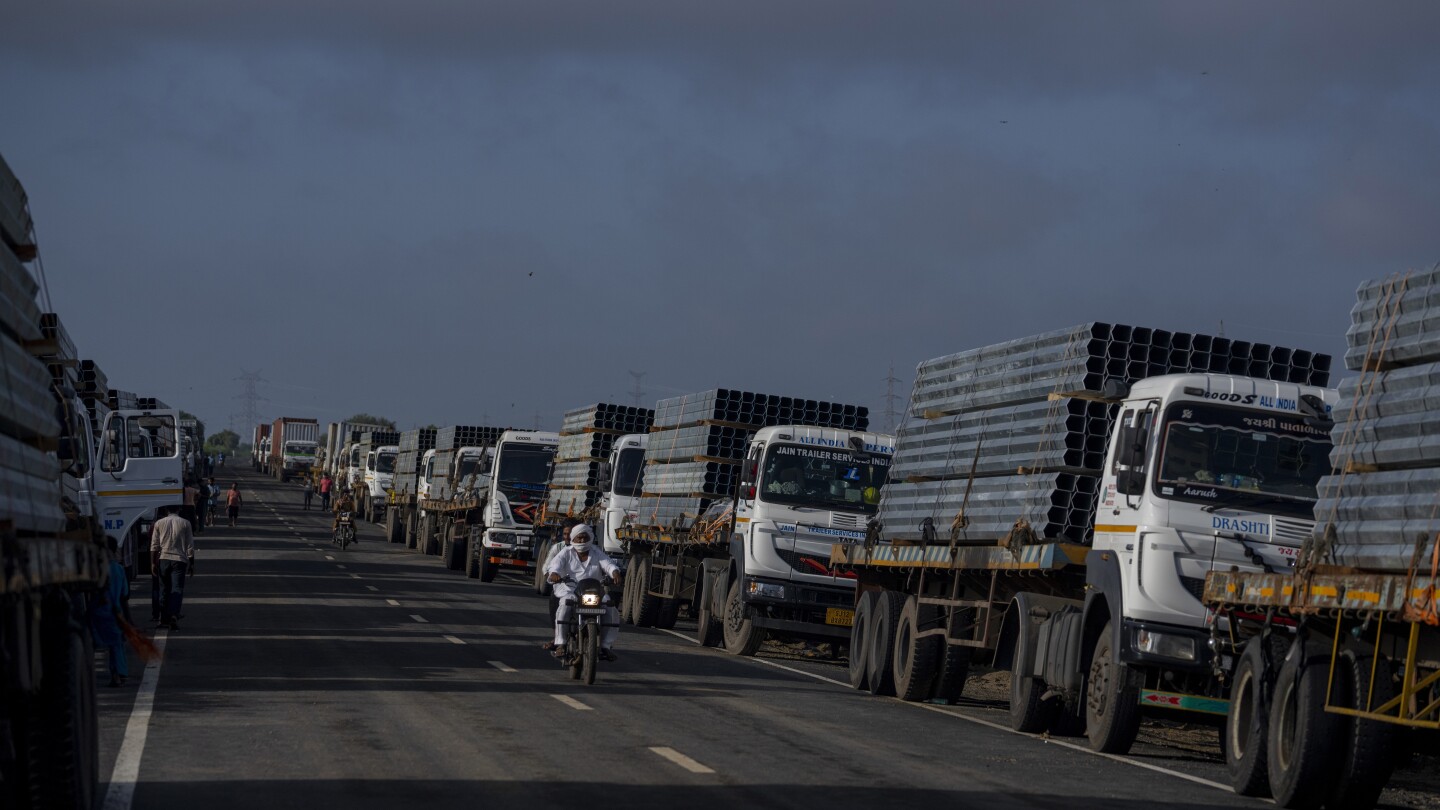DUBAI, United Arab Emirates (AP) — The European Union’s plan to impose a tax on the carbon pollution emitted to make goods imported from countries like India and China has sparked a debate at the United Nations climate conference in Dubai, as poorer countries argue that the tax will harm livelihoods and economic growth.
Known as the Carbon Border Adjustment Mechanism, the tax wants to set a price on the carbon emitted to make energy-intensive products like iron, steel, cement, fertilizers and aluminum in non-EU countries. The EU says this creates a level-playing field for domestically-manufactured goods that have to adhere to stricter green standards and also reduces emissions from imports. But other nations, particularly developing countries, are worried this would harm their economies and make it too expensive to trade with the bloc.
“CBAM’s sole aim is to prevent carbon leakage” elsewhere in the supply chain, European Commissioner Wopke Hoekstra said at a press conference at COP28.
He said the tax is crucial for funding and achieving the bloc’s climate goal of slashing emissions 55% by 2030.
A recent study by the United Nations Conference on Trade and Development found that a tax of $44 per ton of carbon emitted would slash pollution from the supply chain by half. It also estimated that rich countries would make $2.5 billion from the tax, but poorer countries might lose up to $5.9 billion.
The EU already caps emissions from industries that operate within its 27 countries and let’s them buy “allowances” if they exceed their carbon pollution limits. Without a carbon tax on imports, the fear is that the EU’s emissions cap will push industries to other nations outside the bloc that have looser rules around greenhouse gas emissions.
Countries like the United States and Canada are also considering their own versions of a carbon tax, which some worry could “overwhelm” developing countries.
India’s government is one of those strongly opposed to the idea.
India’s former steel secretary Aruna Sharma urged the government to continue to oppose the tax, but said industries do need to invest in lowering their carbon footprint for both exports and domestic goods.
Other nations could also take a hit.
Mohamed Adow, the founder-director of Power Shift Africa, an independent think tank based in Kenya, called carbon taxes a “trade weapon” that could negatively affect Africa.
The tax could “lead to a loss of trade revenue amounting to at least $25 billion for the continent,” he said.
“This issue is a significant concern in international climate politics. It’s not going away, and lives are at stake,” said Li Shuo, director of China Climate Hub at the Asia Society Policy Institute.
There’s also a technical concern: Vaibhav Chaturvedi, a research fellow at the Council on Energy, Environment and Water in New Delhi, said that under the U.N. climate change rules, countries cannot dictate how others should reduce emissions. Carbon taxes go against that rule, he said.
Trade and climate policy experts say many developing countries fear being shut out of Western markets because they won’t be able to clean up their businesses fast enough. They also worry about being caught in conflicts between China and the West, with China seen as the primary target of the EU’s carbon tax.
But K R Raghunath, founder of clean energy solutions company KIS group, said that even though a carbon tax could be “painful” for some countries in the short-term, it will still have a positive impact because it will reduce planet-warming emissions.
“It will be good for everyone in the long run,” he said. “Ultimately, everybody has to reduce their carbon emissions.”
___
EDITOR’S NOTE: This article is part of a series produced under the India Climate Journalism Program, a collaboration between The Associated Press, the Stanley Center for Peace and Security and the Press Trust of India.
___
Associated Press climate and environmental coverage receives support from several private foundations. See more about AP’s climate initiative here. The AP is solely responsible for all content.

